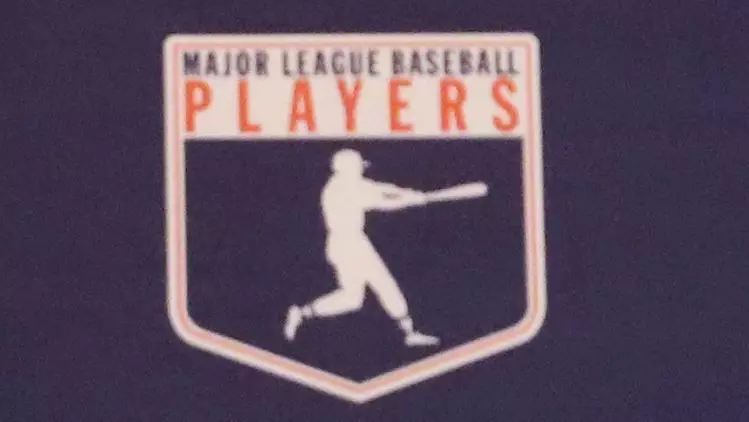Unraveling the Financial Labyrinth: MLB and NFL Players Under FBI Scrutiny
In the captivating world of professional sports, finances and ethics often intersect in ways that can raise eyebrows. Recently, an inquiry by the FBI into a major multibillion-dollar group-licensing firm has shed light on these complex entanglements. The spotlight is on OneTeam Partners, a collaboration between Major League Baseball (MLB), the National Football League (NFL), and an investment firm, which has sent ripples through the sports community. This investigation could reveal practices that have long been hidden in the shadows.
The inquiry is serious yet approached with caution, prompting law enforcement to contact key figures in union leadership. While these athletes are reportedly not targets, the scope of this investigation is broad. It focuses on OneTeam, launched in 2019 by the players’ unions, delving into financial dealings related to media rights and the monetization of athletes’ names, images, and likenesses (NIL). This raises questions about OneTeam’s operations and the ethical foundations of such profitable partnerships.
Key Takeaways
- The FBI’s inquiry into OneTeam Partners highlights potential ethical concerns in sports financial dealings.
- OneTeam Partners has achieved significant financial success but faces allegations of mismanagement and nepotism.
- The investigation could reshape how athlete unions operate financially and ethically.
OneTeam Partners: A Financial Juggernaut
OneTeam Partners has been praised for securing lucrative media deals and expanding its influence across various player unions, from women’s basketball to collegiate athletics. Its success led to a valuation of $1.9 billion in 2022, turning heads within financial circles. The acquisition of a 40% stake by RedBird Capital underscored the high stakes in today’s sports industry. However, beneath this success are troubling allegations of mismanagement, nepotism, and financial misconduct directed at union leadership.
A complaint filed with the National Labor Relations Board (NLRB) accuses the MLBPA of fostering “nepotism and corruption.” A confidential audit into OneTeam’s equity option distribution suggests discrepancies in how union executives managed their roles financially. Specifically, questions arise about equity arrangements and the level of disclosure provided to union members—a breach of ethical standards that could shake these associations to their core if proven true.

Allegations and Ethical Quagmires
The allegations against Tony Clark are significant due to his influential role within the MLBPA. Promoted to executive director after a respected playing career, many trusted him to navigate labor relations effectively. However, as allegations of conflict of interest and inadequate disclosures surface, his credibility is increasingly at risk. Transparency should be a hallmark of sports unions, yet insider dealings that prioritize personal gain over collective interests now cloud it.
Statements from OneTeam’s leadership claiming a commitment to best business practices feel hollow amid scrutiny. Their cooperation with investigators is commendable but raises questions about previous acknowledgments of these pitfalls. The partnership’s growth has financially benefited player unions but highlights that financial success does not equate to ethical soundness. Did they turn a blind eye to issues swept under the rug?

Financial Gains or Ethical Compromise A Juggling Act
The MLBPA’s financial prosperity isn’t disputed; players and the union have gained over $160 million from OneTeam quickly. However, discomfort surrounds how this income is allocated. Despite boasting assets exceeding $353 million—the highest ever—these triumphs must be weighed against alleged ethical lapses. Are players receiving fair wealth distribution or enriching executives at transparency’s expense?
Do such inquiries risk straining relationships between players and unions? Leadership within both unions has begun engaging external legal counsel outside traditional structures. Such moves may signal emerging mistrust between players and representatives—a solidarity erosion potentially affecting future negotiations.

This unfolding narrative in sports governance places trust and transparency under scrutiny. Athletes and their unions face crossroads where financial opportunities clash with moral integrity needed for member trust. As OneTeam navigates this investigation, their actions’ implications may redefine professional sports’ future financial governance.
Final Thoughts
The ongoing investigation into OneTeam Partners reveals much about the intricate balance between success and ethics in professional sports. As athletes strive for recognition beyond their performance on the field or court, ensuring fair practices in monetizing their identities becomes crucial. The outcome could lead to more transparent systems that prioritize athletes’ interests while maintaining ethical standards across all levels of sports governance.
Ultimately, this situation serves as a reminder that while financial gains are essential for growth, maintaining integrity remains paramount for any organization hoping to thrive sustainably within its industry.
MLB investigation
NFL scrutiny
OneTeam Partners
sports ethics


Leave a Reply